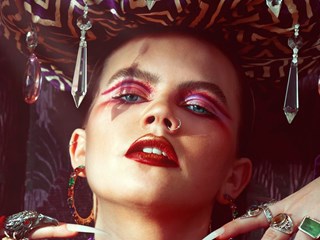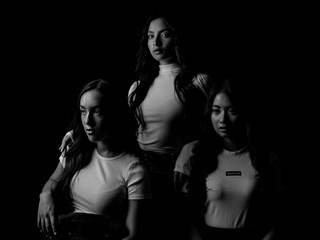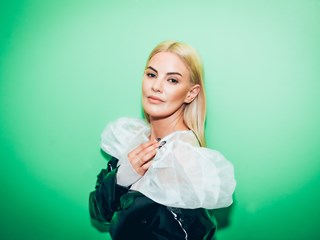Kenny Rogers pauses for a moment when I ask him to recall his first tour. "We didn't know that big, big amplifiers weren't heavy enough to stay down on the top of the station wagon," he says with a laugh. "So we're driving 60 miles per hour and that amplifier came sliding down the freeway behind us. It was kind of a nice spark show, but..." his voice trails off in reflection. "Yeah, you do stupid things when you're young."
Now, more than 50 later, Rogers is embarking on his last tour, aptly titled The Gambler's Last Deal. Although more dates are still being added, the trek kicked off on May 13 in Mahnomen, Minnesota, and currently runs through November, covering ground in the U.S., Asia, the UK, and parts of Europe. The show includes never-seen-before film footage, personal stories, and, of course, a whole lot of hits, from the stone cold country of "Ruby, Don't Take Your Love to Town" to the crossover pop of "You Decorated My Life."
Though Rogers' career has spanned decades and styles, he sees two through-threads connecting it all. "[My songs] fall into one of two categories: either story songs that have social significance. 'Reuben James' was about a black man who raised a white child; 'Ruby, Don't Take Your Love to Town' was about a Vietnam War vet who came home," Rogers explains. "The other category would be songs that say what every man would like to say and every woman would like to hear. I think 'Lady' falls into that, 'She Believes in Me,' 'You Decorated My Life,' 'Through the Years'... Those are the two categories that I think are my strength."

The funny thing is, after short stints with the Bobby Doyle Three, the New Christy Minstrels, and the First Edition, Rogers' whole solo career has been a bit of a happy—and incredibly successful—accident. "I never wanted to be a solo singer. I always wanted to sing with groups. I loved singing harmony," he tells me. "Somehow, I got sidetracked into this hit record thing and, I must say, it's been a good sidetrack, but it wasn't something I ever fought for."
Whether he fought for it or not, Rogers has sold more than 120 million albums worldwide, and made in onto the charts every decade for the last seven. He's had 24 number one hits, 12 number one albums, and racked up more accolades, awards, and accomplishments than he can keep track of. So what's the thing that means the most? "The Country Music Hall of Fame," he says without hesitation. "I was there, and I have older boys and they said, 'Dad, I can't believe you haven't been in all along.' I said, 'Let me tell you something I learned about the Hall of Fame: It's not when you get in, it's that you get in.' Songs come and go. Music comes and goes. Artists come and go. But the Hall of Fame is forever."
Rogers says he's not going to miss performing once he folds his hand. "I remember I met George Burns and I asked him, how he continued to work at 92. That's when he had that record, I Wish I Was 18 Again. He looked me in the eyes and said, 'Kenny, stay booked.' I thought it was a great answer. If you have commitments, you have to go," Rogers says. "I think I will miss that part of it, not having anything to commit to, but you find ways to satisfy that. I'm going to get back into my photography, I think. I just bought a new camera and I can't wait to take pictures."
But between here and his camera, Rogers still has a lot of entertaining to do, and a lot of fans to say farewell to. "If people decide to come to the shows, you owe them something," he says. "I try to sing as good as I can, I try to make them laugh. I don't care whether one person says, 'He's the best singer I've ever heard in my life'—but I think everybody should leave there saying, 'I really enjoyed it.'"

You've always been a consummate entertainer—engaging with fans, cracking jokes, telling stories. Was that standard practice when you started, or something you learned along the way?
I will tell you that my inspiration to be in this business was Ray Charles. I went to see him when I was 12. I didn't even know who he was. I just went to see him with my sister and her boyfriend. I remember, at the time, going home and telling my mom, 'I know what I want to do with my life.' The thing I loved about it was everybody laughing at everything he said, and they clapped for everything he sang. I thought, 'Why wouldn't you want to do that?' To this day I get very insecure if I don't make people laugh. I learned a long time ago, if people are laughing, even if they don't like your music, they're having fun. So that's my goal, to do the songs and make people laugh.
What's changed about touring and performing for you as you've gone along? And what has changed about your audience? Does every crowd always blow the tag lines of "Ruby"?
We've both gotten older.
I love that. That's one of the interaction things. You have to break that barrier between artist and people at some point. 'Ruby' does that. 'Lucille' does it. The more they know of these songs, the more they love to sing 'em. My throat was really bad one night and I said, 'Look, I can't do this, so you guys are gonna have to sing these.' I got 'em started and let them sing 'em. It was great.

Which artists coming up are worthy of passing the torch onto?
I think Blake Shelton, obviously. And Luke Bryan. Those guys certainly have my vote. A lot of the girls are great, too. You know, people get upset because they think country music is changing. I have a theory that country music is what country people will buy. When they quit buying it, it's no longer country. I know that, in my case, I wasn't ever trying to change country music. I was trying to survive. There are only two ways to compete: You can do what everybody else is doing and do it better—and I didn't like my chances of doing that—or you do something totally different, that no one else is doing, and you don't invite comparison. That's what all these kids are doing; they're doing something different than the records that are out there so they can get attention. It'll run its course. Somebody's gonna come in singing like Hank Williams, one of these days, and it's gonna start all over again.
Of all the wisdom that you've gleaned over the years, what do you pass on?
Who am I passing it to? [Laughs]
Whomever you want.
I think that I would tell the performers of today, 'Be very careful because you are influencing the future of this business.' When I went to see Ray Charles, he made me decide I wanted to do this. Surely there's somebody out there that's seeing me or Blake Shelton or one of these guys that's saying, 'Boy, I want to do that!' You want to give them the benefit of a good start. Don't put 'em in a hole to start with.










